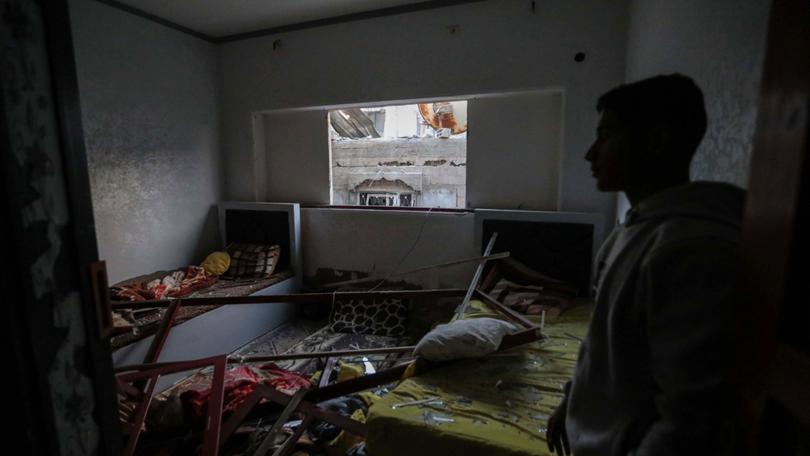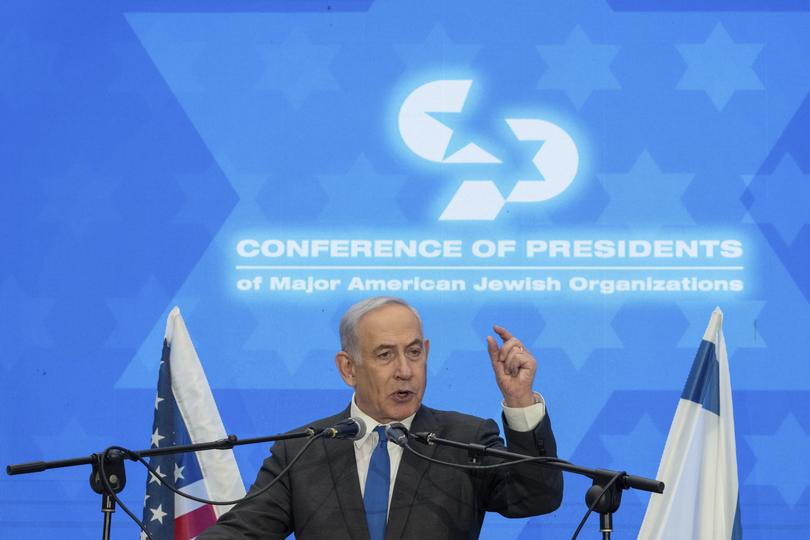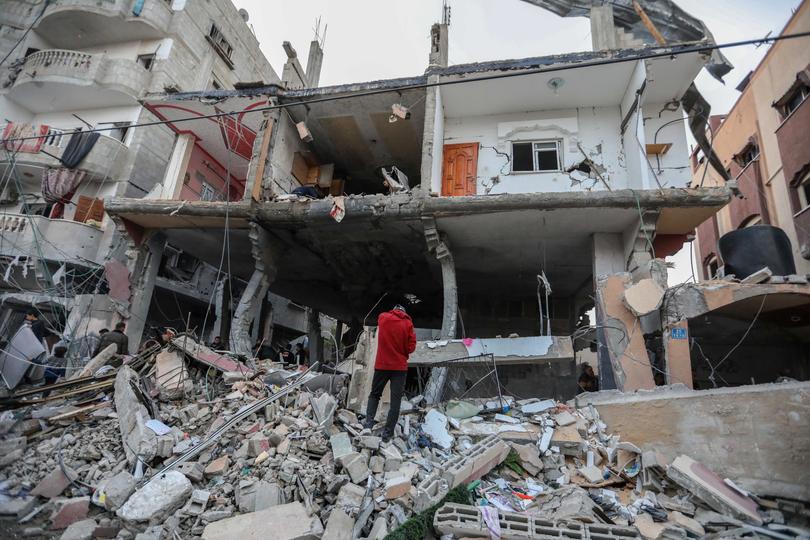Netanyahu says Rafah civilians can be moved north into areas already conquered by Israeli forces
The Israeli PM’s comments followed talks of a breakthrough in ceasefire talks involving the US, Egypt and Qatar.

Israeli Prime Minister Benjamin Netanyahu said he’ll have a “plan for action” in hand on Sunday for moving the million-strong civilian population out of Rafah in the southern part of the Gaza Strip ahead of expanded military offensive.
“There is no disagreement with me and the US about the need to evacuate the population,” Netanyahu said in an interview with CBS’s “Face the Nation.”
Israel doesn’t need “prodding” by the US to shield Gaza civilians, he added. The plan will include how to “dismantle” remaining Hamas battalions, Netanyahu said.
Sign up to The Nightly's newsletters.
Get the first look at the digital newspaper, curated daily stories and breaking headlines delivered to your inbox.
By continuing you agree to our Terms and Privacy Policy.
The Israeli leader said people now in Rafah, near the Egyptian border, would be directed north. “There’s room for them to go north of Rafah to the place that we’ve already finished fighting in,” Netanyahu said.
Much of Gaza has been devastated by Israeli air and ground bombardments since October, and most of the million or more civilians now sheltering in Rafah were moved from areas in the north.
Separately, Netanyahu said he couldn’t predict a timeline for a deal with Hamas on swapping Israeli hostages held in Gaza for Palestinian prisoners in Israel.
Israeli media reported that talks on Friday involving the Israeli delegation and representatives from the US, Egypt and Qatar had yielded a breakthrough.
Netanyahu told CBS that Hamas, which is considered a terrorist organisation by the US and European Union, first needs to back off “delusional claims” which he didn’t specify.
Eighteen of 24 Hamas battalions have been destroyed since Israel’s campaign started after the October 7 attacks on southern Israel by Hamas operatives, in which 1200 people were killed and 250 kidnapped.
An intense Israeli military operation in Rafah could take “a matter of weeks,” and Israel will proceed with it whether there’s a hostage/temporary cease-fire deal or not, Netanyahu said.
Israel has been attacking Hamas in Gaza for nearly five months, killing almost 30,000 there, according to the enclave’s Hamas-run health ministry. Meantime, conditions on the ground in Gaza are increasingly desperate.
Netanyahu’s update on Rafah came as Israeli troops and Palestinian gunmen continued to clashed throughout the Gaza Strip over the weekend, despite the efforts by mediators to bring a measure of Ramadan respite to the battered enclave.
Residents said Israeli forces shelled several areas of the enclave as tanks rolled into Beit Lahiya and soldiers and gunmen waged running battles in the Zeitoun sector of Gaza City - both in the north, which had been conquered early in the offensive.
At least 86 Palestinians were killed in Israeli strikes since Saturday, medics said on Sunday. Israel’s military said two soldiers died in fighting in south Gaza and that its forces killed or captured Palestinian gunmen in Zeitoun and elsewhere.

Egyptian security sources said there would be more talks this week in Doha, with mediators shuttling between Hamas and Israeli delegates, and a follow-up round in Cairo. There was no immediate confirmation of that from Israel, Hamas or Qatar.
The first pause in fighting, in November, saw the release of around half of the 253 people Hamas seized during an October 7 cross-border killing spree that sparked the war. In that deal, Israel freed three times the number of Palestinians from its security prisons and admitted more humanitarian aid to Gaza.
Israeli media, citing unnamed officials, reported there was a framework for the return of around a third of the 130 remaining hostages over a six-week truce covering the Muslim holy month of Ramadan. There was no formal confirmation from either side.
Palestinian officials said Hamas was insisting on Israel calling off the offensive and withdrawing forces under any deal. Israel signalled intent to move into one of the last towns where Hamas, which is sworn to its destruction, has intact forces.
